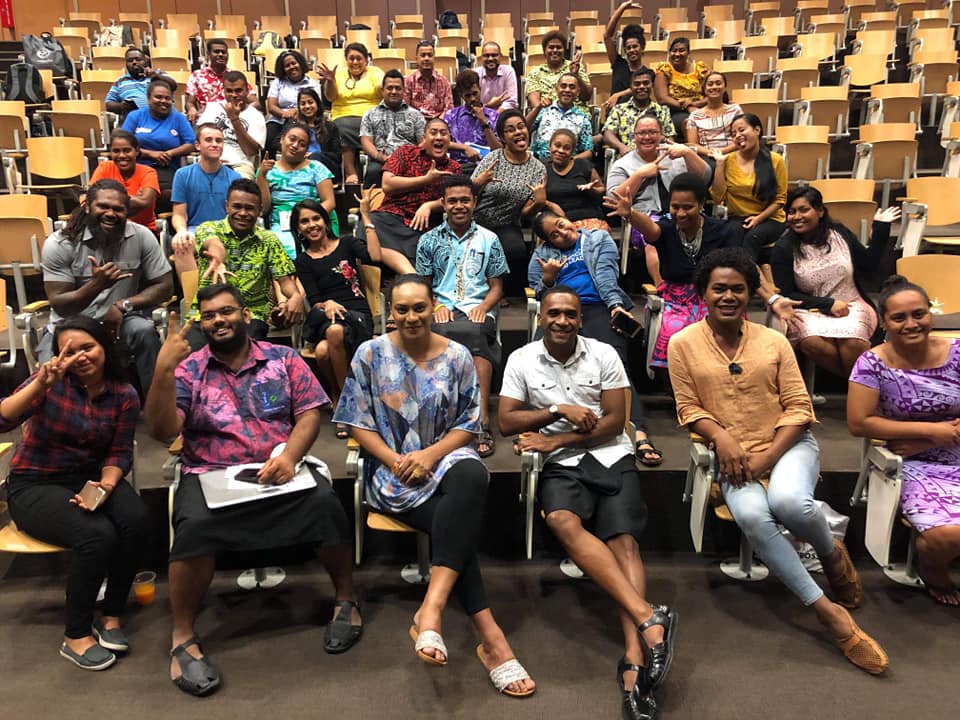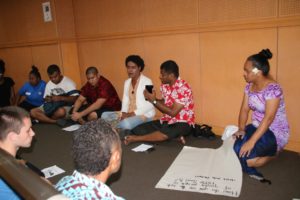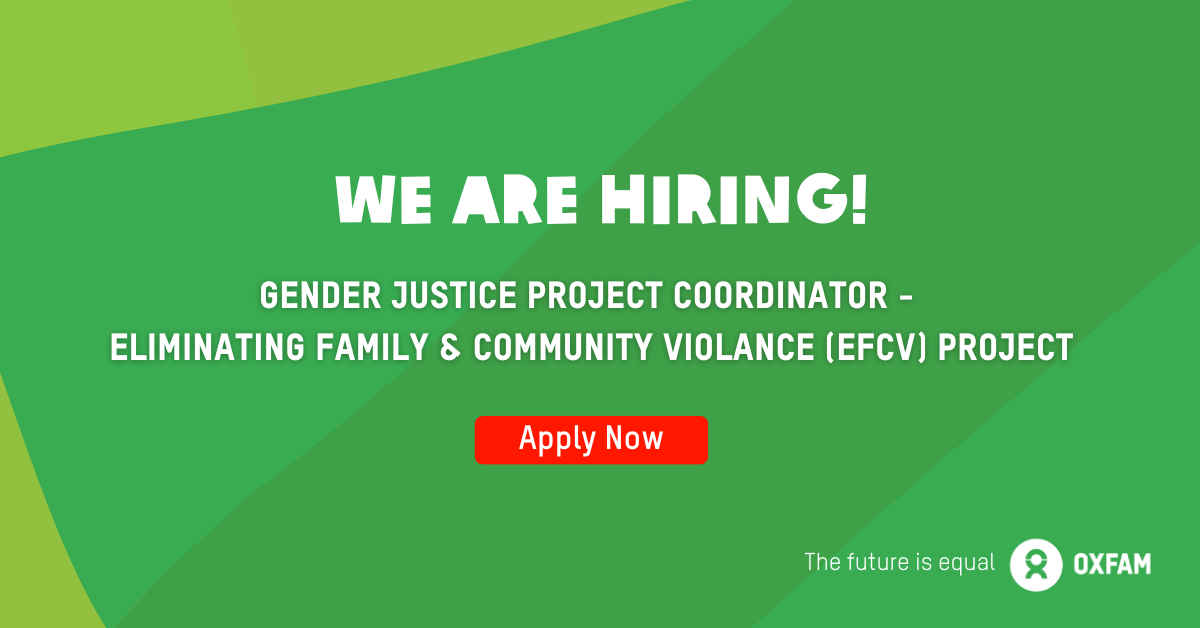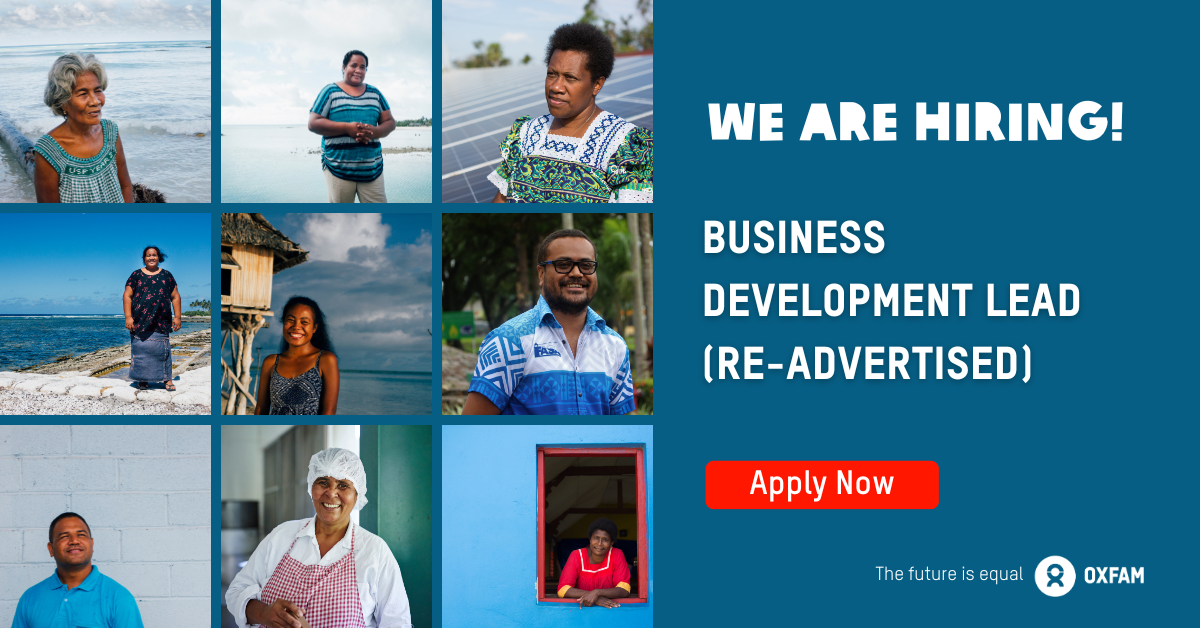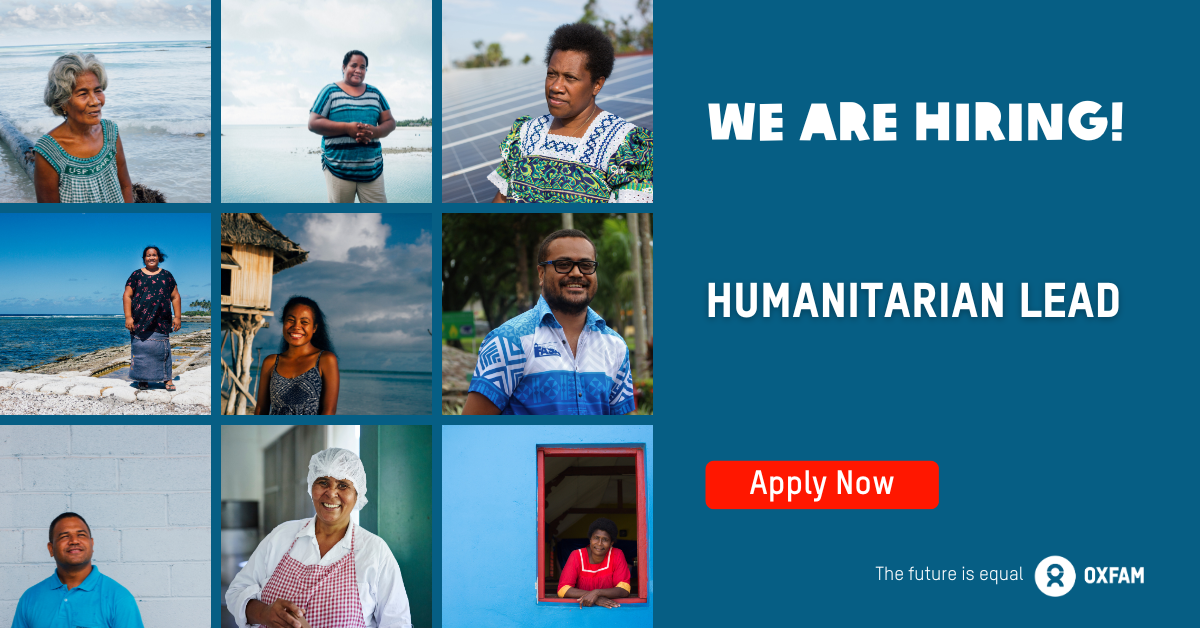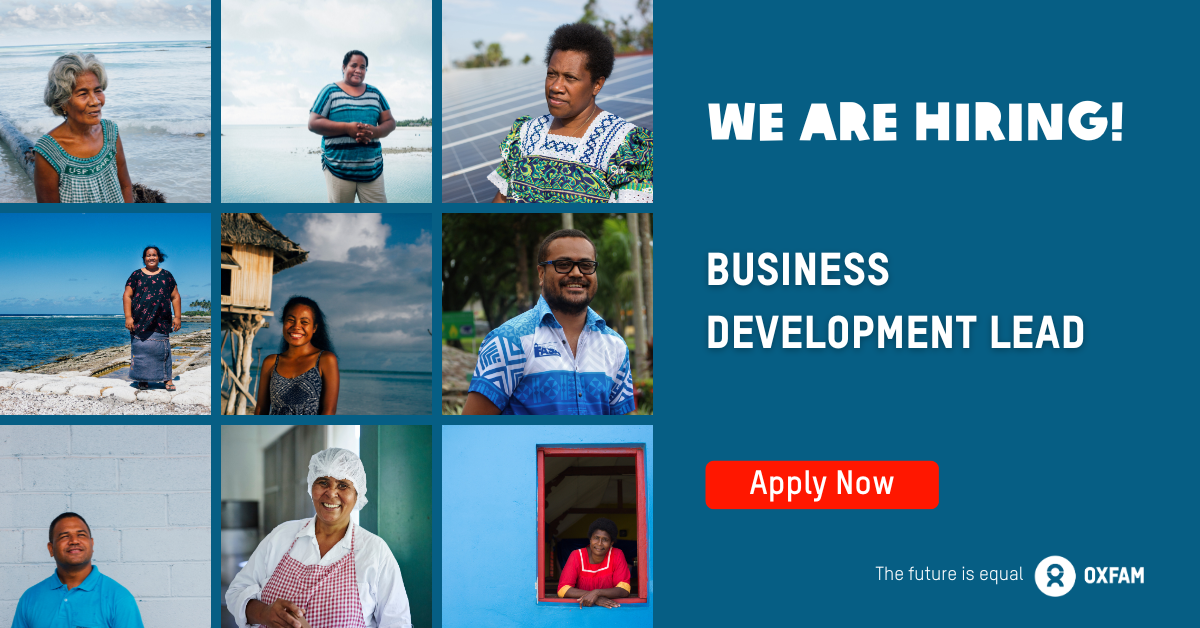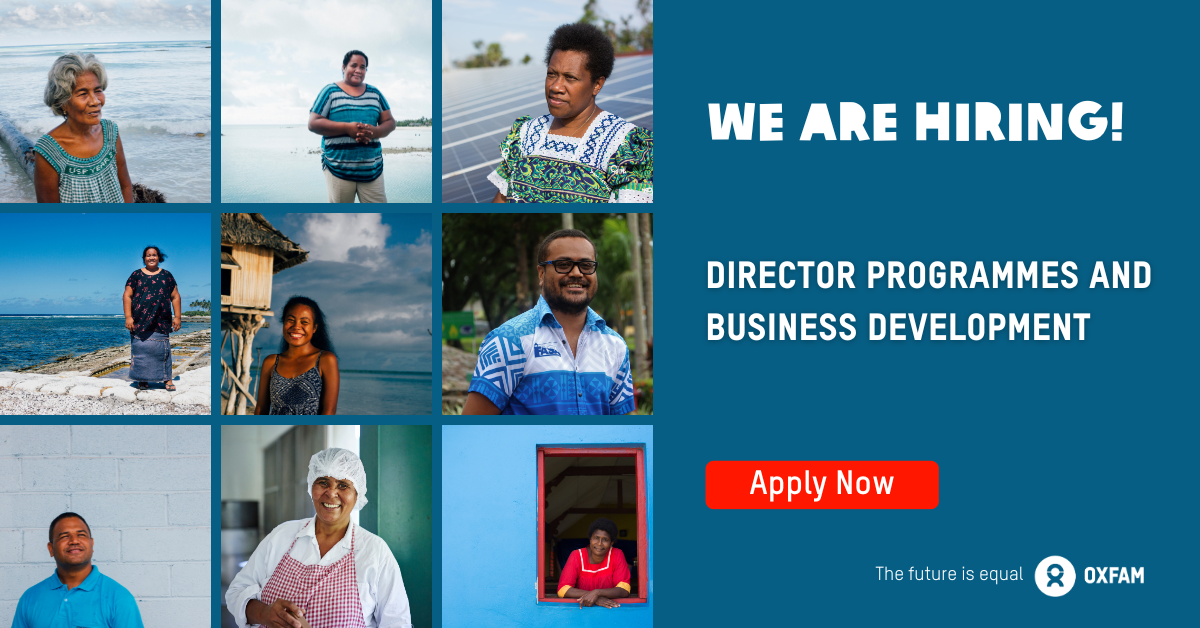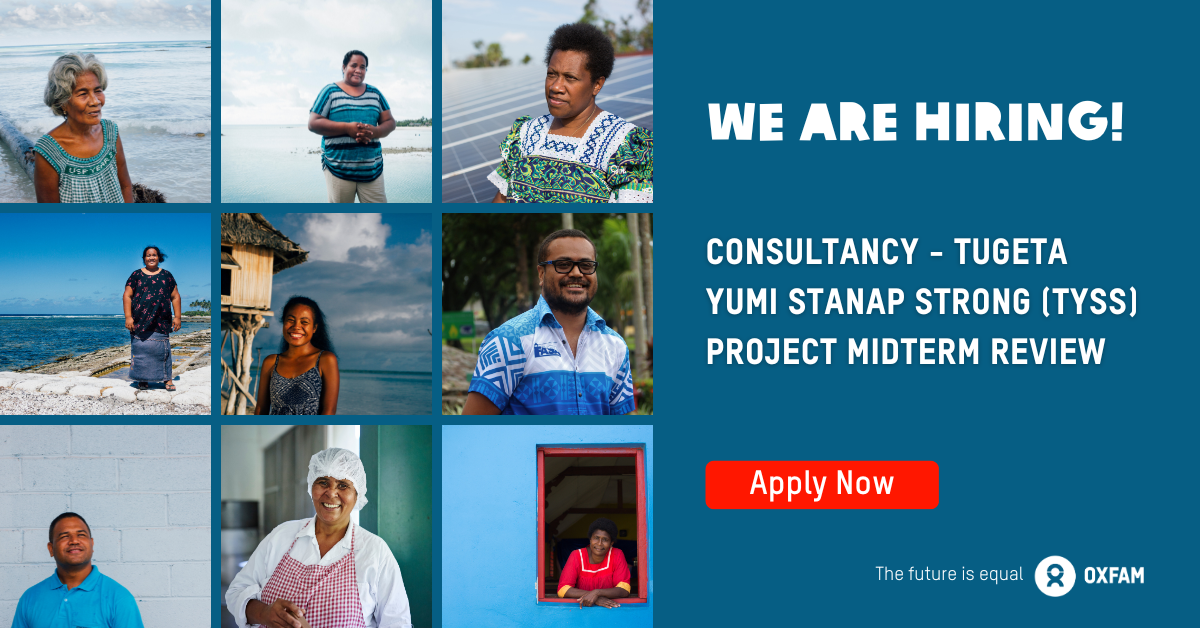We, representatives of youth of the Pacific Islands region, attending the Pre-Pacific Resilience Meeting Youth Forum in Suva, Fiji, 30th April 2019.
Recognize and Acknowledge
- The important role of young people as leaders, advocates, agents of change and educators in realizing the implementation of the Framework of Resilient Development in the Pacific (FRDP); and the role they play in disaster risk reduction and climate change, low carbon development and in disaster preparedness, response and recovery.
- That preparedness has always been part of our lives as Pacific people. Traditional knowledge is our scientific tool for a resilient Pacific, that it prepares our communities for disasters and assists in our quick and sustainable recovery. Therefore, we must capture that knowledge so that young people may carry on those skills and continue to build our regions resilience.
- The importance of localization across the 3 goals of the FRDP. Locally-led initiatives are grounded in the realities of the communities they serve therefore are best able to respond to disasters in a timely and sustainable manner.
- That the risks to our region are not only in climate change and future disasters but are also in our nuclear legacies that continue to impact our communities and pose an ongoing threat to our ocean and our people, both through radiation effects on generations of survivors and through the dispersal of nuclear wastes into our ocean due to ineffective management systems.
- The lack of alignment with existing regional youth development frameworks, such as the Pacific Youth Development Framework, where leaders and young people prioritize young peoples role in climate change and environmental sustainable actions
- That social inclusion is an important component of all work in preparedness and recovery as a disaster does not discriminate.
- Those who are discriminated against, marginalized and vulnerable before disasters, such as persons of diverse gender identities and people with disabilities, are disproportionately impacted during and after disasters. While there are some promising areas of practice, those with ‘underlying vulnerabilities’ experience increased risk of death, injury, violence, economic and social hardship and a lack of access to resources including areas like Sexual Reproductive Health and Rights.
- That mental health is important to building resilience particularly in times of disasters as it affects decision making.
Encourage
- The building of relationships and trust through empowering and engaging youth in all levels of decision making, including adequate funding opportunities for youth-led and youth-based activities that will enable them to implement and support DRR, climate change and humanitarian initiatives that will contribute to the goals of FRDP.
- Regional coordination that recognizes youth voice, participation and engagement within the Framework and mechanism.
- The building of evidence-base information to support youth engagement, including the recognition of traditional knowledge and practices.
Recommend
- There is sustainable, active, and meaningful engagement of young people and children of all diversities in the policy and decision making processes and spaces from a Rights Based Approach including but not limited to:
- The Pacific Resilience Partnership (PRP) Taskforce
- Ongoing and future PRP and FRDP processes at both national and regional levels.
- Including a youth forum in all future PRP conferences and meetings.
- The review of the FRDP with particular emphasis on:
- The definition and understanding of resilience from Pacific contexts
- The need for allocation of resources towards the localization of the Framework on a national and community level
- Building awareness of resilience, disaster preparedness and the FRDP to communities through the use of formal and informal storytelling, innovative technology and media, and mainstream media particularly radio recognizing that for many of our communities this is the most accessible form of media.
- Establishing a Pacific Youth Resilience Hub with existing formal and informal youth groups for the purpose of knowledge and resources sharing.
- The active enabling of national policies on ethical consumerism to effectively address unsustainable consumer patterns across the Pacific
- The reintroduction of sustainable traditional resilient practices such as traditional sea transportation, farming practices and housing construction, as a means to reduce carbon emissions.
- Instituting financial instruments that promote clean energy investments by requiring banks to ensure that 5% of their lending portfolio is geared towards clean energy.
- Reduction of tariffs and taxes on bulk buying renewable energy technology and equipment that make it more economical for Pacific Island businesses to purchase.
- Mental health training be a required component of preparedness and recovery work recognizing that stress can impair decision making.

